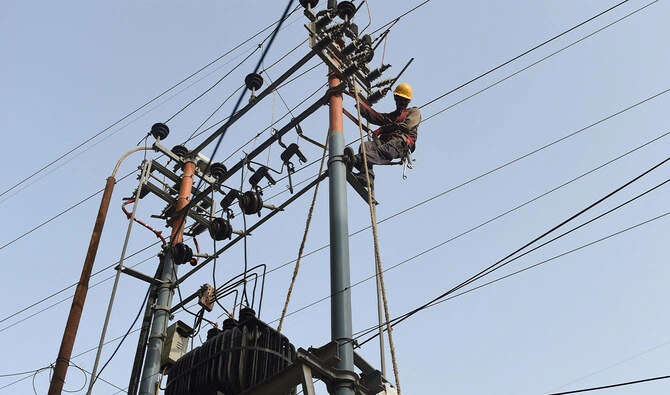Lorem ipsum dolor sit amet, consectetur adipiscing elit. Ut elit tellus, luctus nec ullamcorper mattis, pulvinar dapibus leo.
12-JULY-2025,03:54 PM In the bustling metropolis of Karachi, Pakistan’s largest city and economic hub, a disturbing trend is emerging—one that has left law-abiding citizens frustrated and powerless in more ways than one. Despite being up-to-date on their electricity bills and following all regulations, residents in many areas are being subjected to routine power cuts, often without notice, explanation, or justification.
While the utility companies claim these outages are part of “load management” to combat energy theft and overconsumption, critics argue that this system punishes the wrong people—those who pay their dues while others continue to steal electricity with impunity.
Power Cut Woes Hit Paying Citizens in Karachi
Widespread Outages Despite Full Compliance
In neighborhoods like Gulistan-e-Jauhar, Gulshan-e-Iqbal, Nazimabad, and Malir, residents are reporting daily power cuts lasting up to 6–8 hours, even though their areas are categorized as “low-loss zones.” These are localities where utility losses are minimal, and residents generally have a history of full bill payment and legal meter usage.
“I’ve never missed a bill payment in 20 years, yet we are facing hours of power outages every day,” said Saima Rehman, a resident of Gulshan Block 13-D. “Why are we being penalized for others’ wrongdoing?”
Disrupted Lives and Silent Authorities
The power cut issue is not just an inconvenience—it has paralyzed daily life. From students missing online classes, to elderly people suffering in the heat, and businesses facing huge financial losses, the impact is wide-ranging. Yet, despite mounting complaints, Karachi Electric (KE) and other utility providers have offered no clear timeline for resolution or any targeted relief for compliant users.
Understanding the “Load-Shedding” Model in Pakistan
Loss-Based Load Management: A Flawed Approach?
In theory, load-shedding—temporary, planned power cuts—is meant to stabilize an overloaded power grid. But in practice, KE applies this model based on a “loss-ratio,” where areas with higher electricity theft face more outages, and “low-loss” areas are meant to get uninterrupted power. However, this is no longer being followed reliably, as even compliant zones are now facing unjustified cuts.
Experts point out that this shift could be due to outdated mapping, flawed monitoring, or simply mismanagement.
Citizens Pay for What They Don’t Use
The greatest irony is that in areas where residents legally consume and pay for electricity, they are being denied basic utility rights. Many residents are now asking: What is the incentive to remain a law-abiding citizen if utility companies treat everyone the same—whether they steal power or not?
This sentiment is gaining traction across social media, where #PowerCut and #JusticeForBillPayers have started trending.
Legal and Consumer Rights Violated by Karachi Utilities
No Accountability, No Compensation
One of the key concerns surrounding these unannounced power cuts is the lack of consumer protection mechanisms. There is no provision for compensating paying users for the loss of business, health risks, or inconvenience caused due to these outages.
Despite several appeals to the National Electric Power Regulatory Authority (NEPRA), there has been little to no accountability enforced on KE or other local providers.
Law-Abiding Citizens Left with No Recourse
Even those who have approached the Consumer Courts or filed complaints through official channels have seen no measurable improvement. “I filed a formal complaint with KE, followed by an escalation to NEPRA. All I received was a templated apology,” said Asad Ali, a small business owner in North Nazimabad. “It’s like the system is rigged to ignore those who play by the rules.”
Economic Impact of Power Cuts in Karachi
Small Businesses Are the Worst Hit
Karachi, often called the commercial heart of Pakistan, is home to thousands of small and medium-sized businesses. These enterprises are facing crippling operational losses due to prolonged and unscheduled power cuts.
From restaurants and printing presses to tailoring shops and clinics, many have reported a 30–50% drop in daily revenue. “I run an online clothing brand, and we need electricity for stitching, packaging, and digital access. These outages are killing us,” said Faiza Khan, a young entrepreneur in Korangi.
Industrial Zones Not Spared Either
Even industrial sectors in Karachi, such as Korangi Industrial Area and SITE, have raised alarm over intermittent power cuts. Factory production schedules are being disrupted, export deadlines are being missed, and jobs are at stake—all in a country that’s already facing economic instability.
Civil Society Demands Transparency and Reform
Protests and Petitions on the Rise
The situation has now reached a boiling point. Civil rights groups and citizen coalitions are organizing protests, online petitions, and even legal challenges against KE. Platforms like Change.org have seen a surge in signups demanding a fair and transparent power cut policy.
The Karachi Citizens Alliance recently submitted a memorandum to NEPRA, calling for:
-
Area-wise publication of load-shedding schedules
-
Full exemption for low-loss zones
-
Compensation for prolonged outages
-
Annual audits of power companies’ performance
Government Silence Raises Concerns
So far, neither the federal government nor provincial leadership has taken decisive action. Political leaders have issued vague statements calling for “review” but have stopped short of enforcing reforms or holding KE accountable. This lack of political will is being criticized by both the public and energy analysts.
What Needs to Change?
Targeted Power Cut Policy for True Defaulters
Experts argue that instead of blanket power outages, utilities should invest in smart metering and localized grid monitoring. This would allow KE and other providers to pinpoint areas of theft and apply load-shedding in a more targeted, fair way—sparing those who follow the law.
Incentivizing Compliance, Not Punishing It
There is a growing consensus that the current system disincentivizes legal compliance. If law-abiding consumers see no reward for their honesty, and receive the same or worse treatment as defaulters, it sets a dangerous precedent.
“Utilities must build trust,” says energy policy analyst Maria Nasir. “Otherwise, the message being sent is: stealing pays more than compliance.”
Conclusion: Power Cut Crisis Reflects Deeper Governance Failures
The ongoing power cut crisis in Karachi is not just an energy issue—it is a failure of governance, regulation, and consumer justice. By punishing law-abiding citizens while letting power thieves off the hook, utility companies are eroding public trust and undermining the very foundations of a functional society.
As Pakistan navigates its energy and economic challenges, the people of Karachi are sending a clear message: They demand fairness, transparency, and dignity—not just electricity.
Source : ANI





